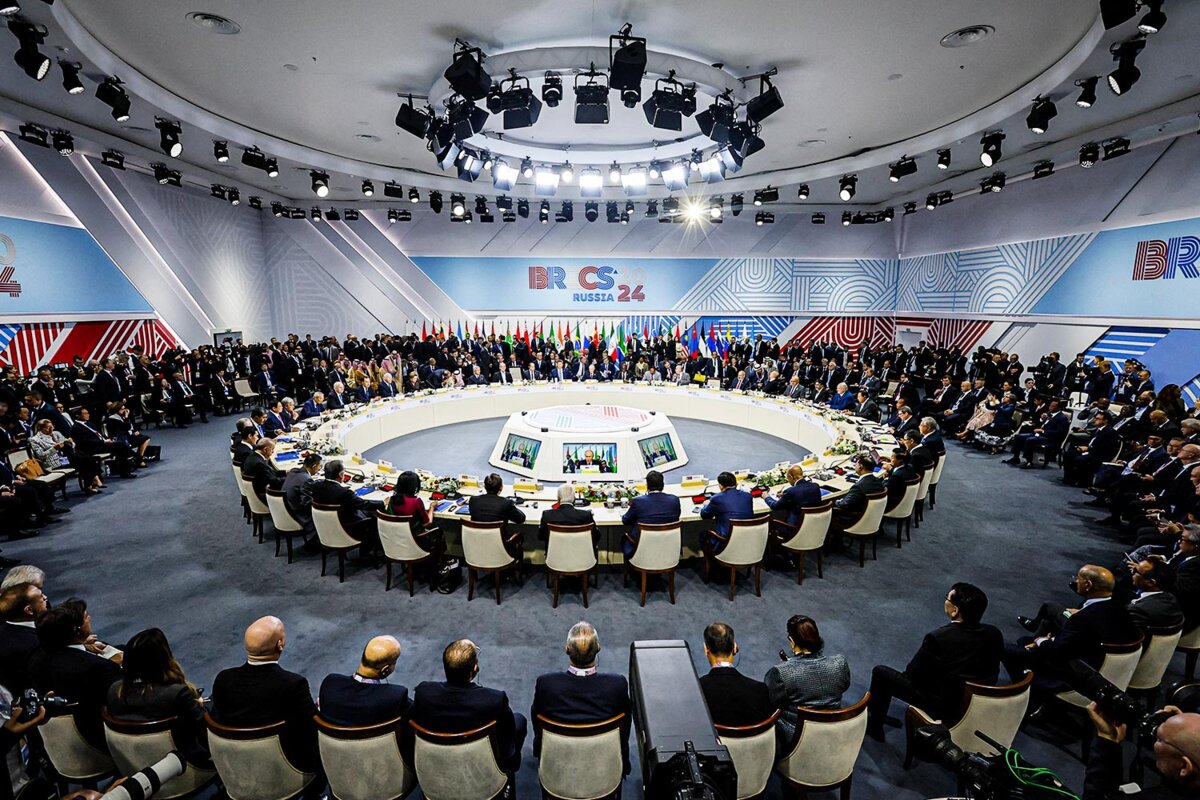By Badr Chimi.

The annual BRICS Summit hosted in Kazan, Tatarstan, from October the 22nd to 24th of this year. Russian President Vladimir Putin welcomed leaders and representatives from various countries. Notable attendees included Indian Prime Minister Narendra Modi and Chinese President Xi Jinping. The summit was crucial for showcasing Russia’s international partnerships amid ongoing sanctions and geopolitical tensions.
BRICS as a term stands for Brazil, Russia, India, China, and South Africa, a coalition that was formed in 2009 to challenge Western economic and political dominance. The coalition aims to create a strong economic force by establishing alternative financial institutions for countries willing to develop. One such institution is the New Development Bank (NDB), which funds development initiatives for member countries. BRICS also seeks to enhance trade among its members and promote sustainable development.
Despite its ambitious goals, BRICS faces significant challenges. Each member grapples with internal issues that can hinder the economic stability, and external conflicts complicate the coalition’s efforts. Russia’s strained relations with the West and ongoing tensions between India and China are on top of the list.
The recent summit marked a pivotal moment for BRICS, afterincluding new members like Egypt, Iran, Ethiopia, and the UAE. Discussions focused on creating a new currency to reduce reliance on the US dollar, which reflects a collective desire for greater financial independence.
During the summit, leaders discussed enhancing cooperation in three key areas: politics and security, economy and finance, and cultural and humanitarian ties, also strategies to address global challenges, such as food security and climate change. The summit aimed to strengthen the coalition’s role in international affairs, particularly as many countries express interest in joining it.
Recently, several countries have shown interest in joining the BRICS coalition, such as Malaysia, Thailand, and Indonesia, all of which have expressed aspirations to become members. Additionally, countries like Syria, Colombia, and Serbia are also on the list of potential new members. This growing interest highlights the coalition’s expanding influence and the desire of many nations to align with BRICS for economic and political collaboration.
The summit also served as a platform for Russia to demonstrate its resilience and continued relevance on the global stage. Despite facing isolation due to the ongoing conflict in Ukraine, the gathering of world leaders signalled that Russia still maintains important partnerships. This was particularly fundamental for Putin, who aimed to showcase that Russia is not as isolated as it may seem.
